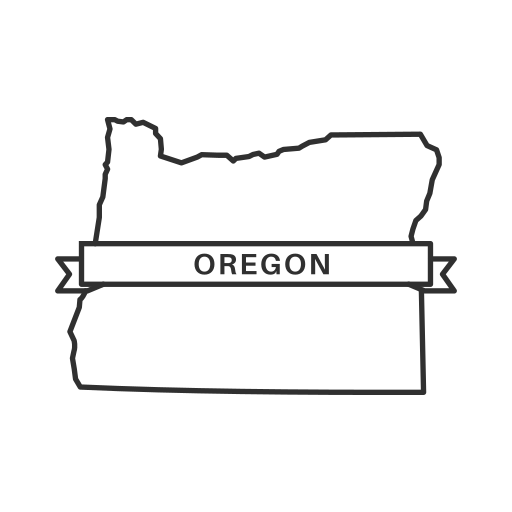Oregon Agriculture Statistics 2023: Facts about Agriculture in Oregon reflect the current socio-economic condition of the state.

LLCBuddy editorial team did hours of research, collected all important statistics on Oregon Agriculture, and shared those on this page. Our editorial team proofread these to make the data as accurate as possible. We believe you don’t need to check any other resources on the web for the same. You should get everything here only 🙂
Are you planning to start an Oregon LLC business in 2023? Maybe for educational purposes, business research, or personal curiosity, whatever it is – it’s always a good idea to gather more information.
How much of an impact will Oregon Agriculture Statistics have on your day-to-day? or the day-to-day of your LLC Business? How much does it matter directly or indirectly? You should get answers to all your questions here.
Please read the page carefully and don’t miss any words.
On this page, you’ll learn about the following:
Top Oregon Agriculture Statistics 2023
☰ Use “CTRL+F” to quickly find statistics. There are total 10 Oregon Agriculture Statistics on this page 🙂Oregon Agriculture “Latest” Facts
- About 2,000 varieties of soil can be found in Oregon.[1]
- 30% of Oregon’s total sales came from livestock and poultry.[1]
- 80% of Oregon’s agricultural products were exported, about 33% of the country’s exports.[1]
- Oregon accounted for 69% of crops from its total sales.[1]
- Eleven thousand six hundred sixty-two farms in Oregon, with 2.9 million in sales in 2017, or barely 0.1% of all farms, sold less than $1,000 in agricultural goods.[1]
- 8% of Oregon’s farms had sales between $100,000 and $500,000; these businesses accounted for 13% of the state’s 666 million sales in 2017 and 2,844 farms in the state.[1]
- 13% of Oregon’s GDP came from agriculture, accounting for $2.57 billion in exports and $5.01 billion in production.[1]
- Oregon’s family-owned and operated farms and ranches accounted for 96.7% of the state.[1]
- The COVID-19 virus severely damaged Oregon’s economy, including the agriculture sector, with over 90% of firms in the state reporting negative effects. Small business pulse survey by the U.S. Census Bureau.[2]
- According to a survey by Oregon State University, 12% of farms in Oregon, which is more than twice the national average, participate in direct-to-consumer marketing, with sales of over $53 million coming from an estimated 4,252 farms in 2015.[1]
Also Read
How Useful is Oregon Agriculture Facts
In recent years, the push for transparency and information has led to the development of platforms that provide consumers with insights into various aspects of agriculture, including Oregon agriculture facts. These resources offer valuable information on the state’s agricultural practices, trends, challenges, and accomplishments, giving individuals a better understanding of where their food comes from and how it is produced.
One of the primary benefits of Oregon agriculture facts is the opportunity for consumers to make informed choices about the food they consume. By knowing the processes and practices involved in producing various agricultural products, individuals can select products that align with their values, whether it be supporting local farmers, sustainable farming practices, or animal welfare standards.
Furthermore, Oregon agriculture facts can help bridge the gap between consumers and farmers, fostering a greater sense of connection and understanding between the two. By shining a light on the hard work and dedication of Oregon farmers, these facts can instill a sense of appreciation for the individuals who work tirelessly to bring food to our tables.
Additionally, Oregon agriculture facts can serve as a valuable educational tool, providing students and researchers with a wealth of information to study and analyze. By examining the trends and patterns in Oregon agriculture, individuals can gain insights into the industry’s evolution over time, as well as the challenges and opportunities that lie ahead.
Moreover, Oregon agriculture facts can be a powerful advocate for the industry, bringing attention to the contributions of agriculture to the state’s economy and local communities. By highlighting the economic impact of agriculture, these facts can underscore the significance of supporting and investing in the industry for the overall well-being of Oregon.
In conclusion, Oregon agriculture facts play a crucial role in providing essential information and raising awareness about the state’s agricultural sector. By offering insights into the industry’s practices, trends, and impacts, these facts empower consumers to make informed choices, foster connections between consumers and farmers, serve as an educational resource, and advocate for the economic contributions of agriculture. With a deeper understanding of Oregon agriculture, individuals can truly appreciate the invaluable role that farmers play in nourishing our communities and sustaining our way of life.
Reference
- oregonfb – https://oregonfb.org/about/oregon-agriculture/
- oregon – https://sos.oregon.gov/blue-book/Pages/facts/economy-overview.aspx
